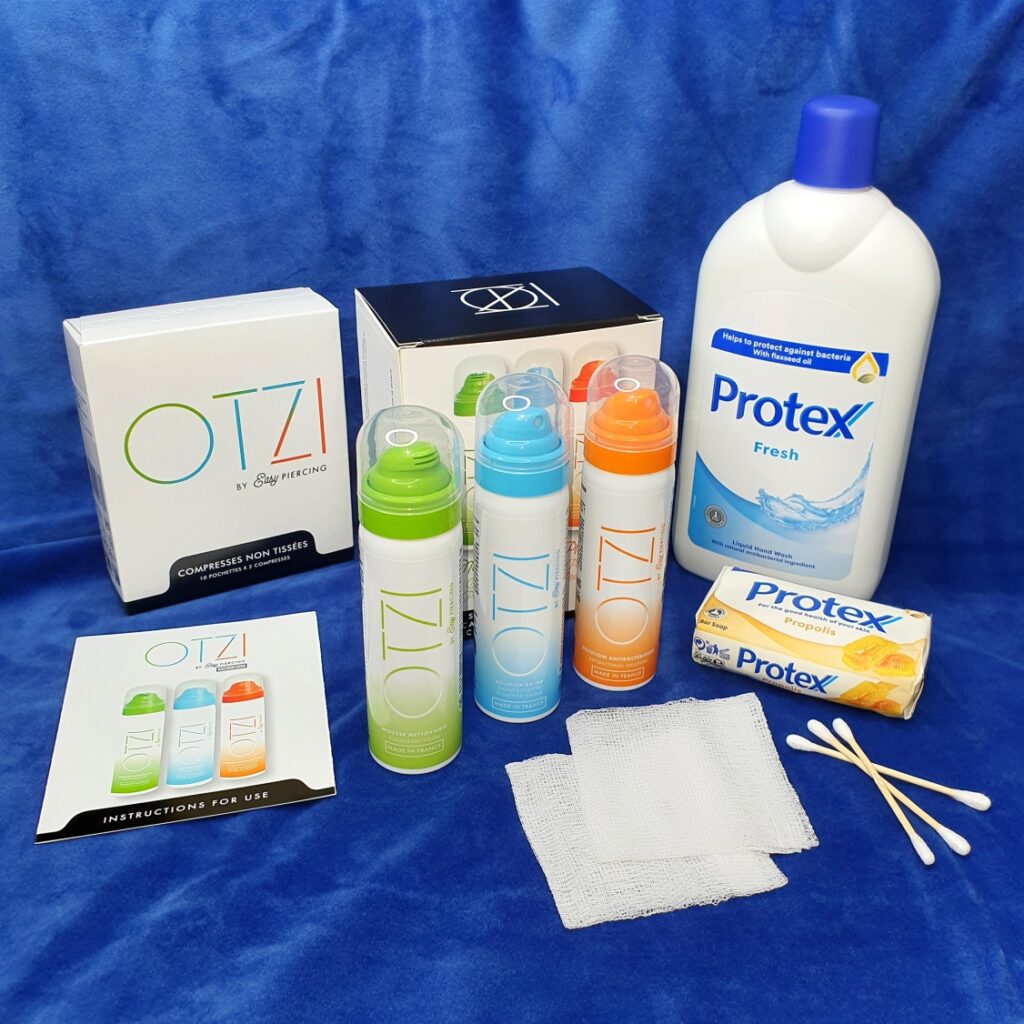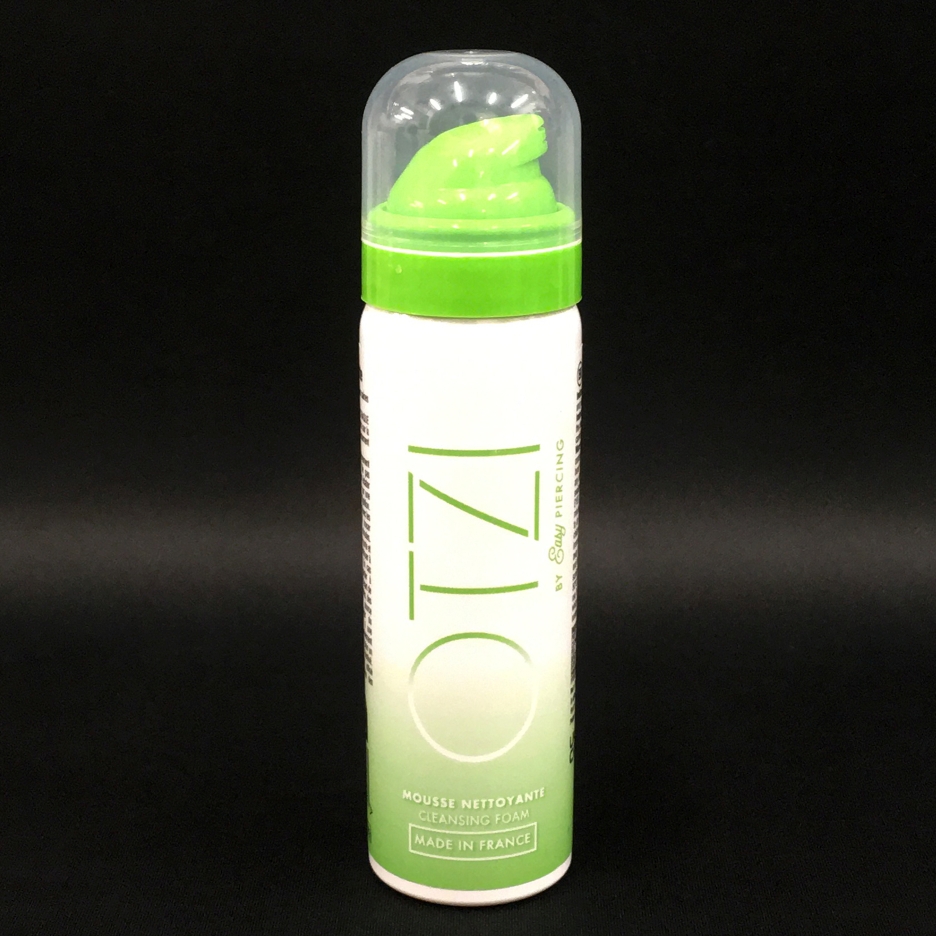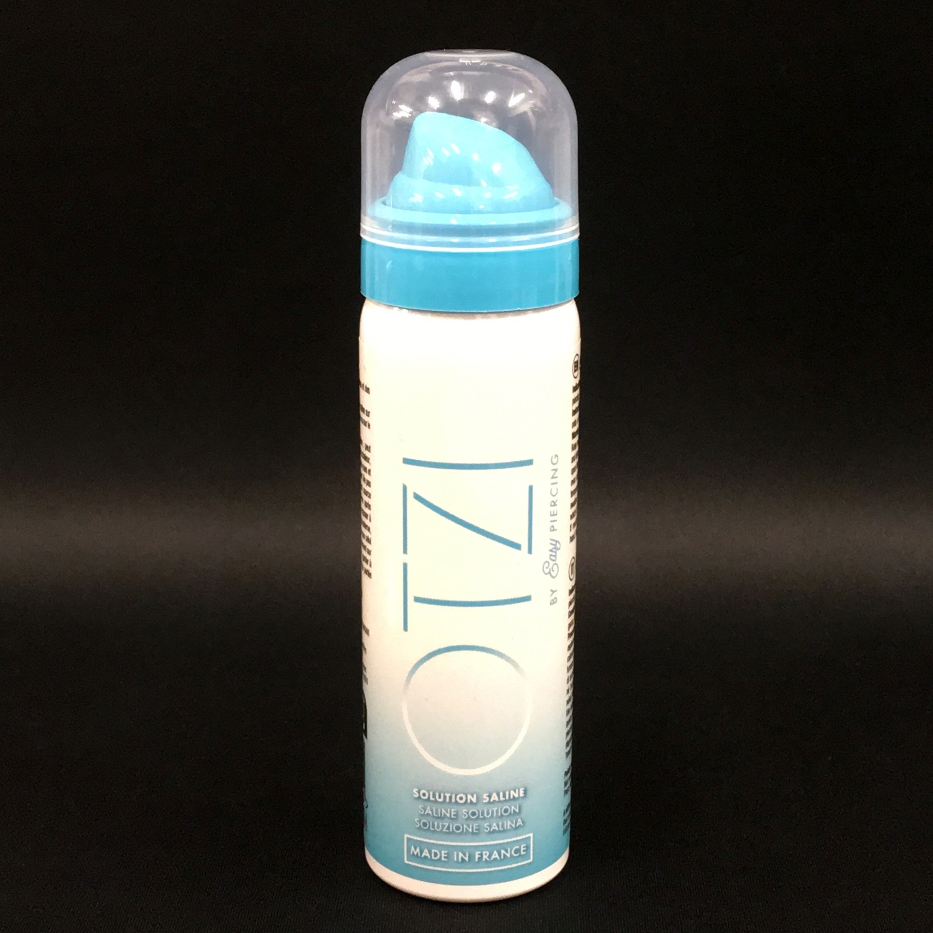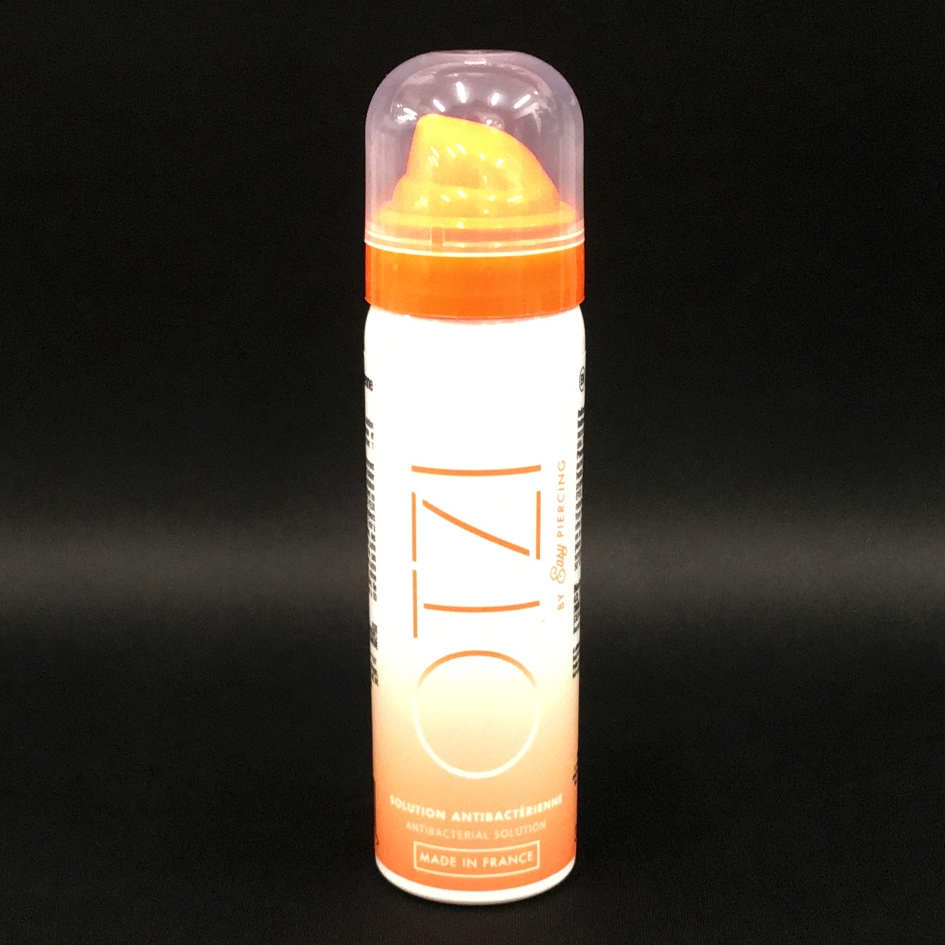
To heal properly and without complications, the piercing needs responsible daily care. And because using the right products is crucial for smooth healing, we have prepared an overview of what to clean your piercing with, what to avoid and what is downright harmful to the piercing.
What Should You Use to Clean a Piercing?
The most important step for the proper care of a new piercing is to choose the right cleaning product. Opinions on which is the most suitable often vary, some studios recommend antibacterial soap, others the use of products based on physiological solutions or sea salt solutions. At Root Down, we rely on over 25 years of experience in the profession and recommend both options for cleaning, with antibacterial soap considered to be essential.
Why You Should Use Antibacterial Soap for Piercing Care
Antibacterial soap is ideal for cleaning fresh piercings because it not only perfectly removes crumbs, crusts, discharge and grease, but also effectively cleans dried dirt adhering to the jewelry, which solutions often cannot do. Unlike saline solutions, which are primarily proven to flush the wound, soap works directly on the surface of the skin around the piercing to provide thorough cleansing and disinfection. Its ability to remove grease and debris that may accumulate in the piercing area during the healing process is important for a quick and safe healing process. In addition, antibacterial soap helps eliminate harmful bacteria that could slow healing and lead to infections. Its antibacterial properties protect the piercing and promote proper skin regeneration, which is essential for preventing complications.

Saline Solution and Its Benefits for Piercing Care
Unlike antibacterial soap, which is heavily focused on removing dirt and bacteria, saline solution (or sea salt solution) is often used as a gentle alternative for rinsing piercings, especially for individuals with very sensitive skin. Saline solution has a pH level similar to that of human cells, making it a gentle option for those prone to allergic reactions or skin irritation. It is also ideal for people with such sensitive skin that even high-quality mild antibacterial soap could cause irritation or dryness.
In contrast, saline solutions are gentle and do not irritate or dry out the skin, which is crucial for long-term piercing care. A key benefit of saline solution is its practicality in situations where rinsing with water is not possible, such as when traveling or in areas without access to clean water. The solution offers a convenient alternative for keeping the piercing clean, even when a thorough rinse with soap and water isn't an option.

Combination of Antibacterial Soap and Saline Solution
The ideal care for a piercing consists of a smart combination of both methods. Antibacterial soap serves as an effective way to remove any dirt that builds up on and around the jewelry throughout the day, while the subsequent use of saline solution helps soothe the skin, support the natural healing process, and maintain a balanced environment for the piercing. Combining the two creates a comprehensive approach that is both gentle and highly effective.
MBA Antibacterial Solution – Why Include It in Your Piercing Aftercare?
The third and final step in optimal piercing care that we recommend at Root Down is the use of MBA's antibacterial solution. This time-tested spray acts as an antibacterial booster, providing additional protection during the early stages of healing, helping to minimize the risk of infection and creating an antibacterial film on the surface of both the skin and jewelry.
While antibacterial soap and saline play their part in cleansing and promoting healing, antibacterial solution adds another level of protection by eliminating harmful bacteria and keeping the piercing in a safe environment.
The Function of Antibacterial Solution in Piercing Aftercare
After cleaning with antibacterial soap and rinsing with saline solution, the skin is free of impurities and ready for the application of the antibacterial solution. The spray is applied directly to the dry piercing, where it acts as a protective antibacterial shield. The solution is not rinsed or wiped off and is left to air dry to maximize its effectiveness.
Thanks to its carefully balanced composition, this solution is highly effective against bacteria while remaining gentle on the skin. It contains a small amount of alcohol, which enhances the antibacterial effect of the main active ingredient, chlorhexidine, while minimizing the risk of skin irritation or dryness.
However, it is important to follow the recommended dosage and duration of use. We recommend using this solution only during the first three weeks of healing. After this stage, its application must be limited or used only occasionally as needed - for example, during increased physical activity, sports, or travel. Using it more frequently or for longer periods than recommended may have negative effects.
This spray is also a great help in situations when a healed piercing becomes irritated, for example, after lying on it or snagging the jewelry. Its use quickly restores the piercing to normal and is therefore a welcome companion not only at home but also when traveling.
MBA's antibacterial solution has also found significant use in the care of microdermal implants, which cannot be cleaned with antibacterial soap. Its properties even surpass those of commonly recommended saline solutions. Thanks to this, it is considered a universal solution, even beyond conventional piercings.

What to Avoid in Piercing Care: Unsuitable Products
When caring for piercings, it is important not only to know what to use, but also what to completely avoid. Some commonly used disinfectants and ointments, on the other hand, can slow down the healing process or cause unnecessary complications.
Alcohol, Hydrogen Peroxide, Betadine, and Homemade "Disinfectants"
Alcohol tinctures such as plum brandy, vodka, or other spirits are sometimes perceived as universal disinfectants, but they are completely unsuitable for caring for a fresh piercing. Even pharmaceutical-grade alcohol can cause significant irritation, dry out the skin, and slow down the natural healing process.
Similarly, hydrogen peroxide, Betadine, and similar disinfectants have a harsh effect. Although commonly used for disinfecting minor wounds, their aggressive formulation disrupts the regeneration of the delicate tissue around the piercing, and especially with prolonged use, they do more harm than good.
Although it may go against intuition or the established habits of a "home pharmacy," these substances definitely do not belong in piercing care.
Ointments like Framykoin and other antibiotic creams
Ointments like Neosporin or Framykoin are not suitable because they block the skin's ability to breathe and can slow the healing process. Additionally, antibiotic ointments do not work preventively. Unnecessary or prolonged use of antibiotics can contribute to the development of resistant bacteria, which reduces the effectiveness of treatment for actual infections in the future. Furthermore, it unnecessarily burdens the body with an antibiotic substance without any real benefit.
Tea tree oil and other essential oils
Although essential oils, especially tea tree oil, are often recommended as natural antiseptics, their high concentrations can cause skin irritation, dryness, or even chemical burns. Therefore, tea tree oil is generally not recommended for fresh piercing care, even in diluted form. The risk of adverse reactions usually outweighs any potential benefits, and what may help one person could significantly harm many others. For these reasons, we recommend completely avoiding its use.
Remember proper care and patience
The right choice of products is essential for the quick and smooth healing of your piercing. The ideal combination includes antibacterial soap, saline solution, and an antibacterial spray. This trio ensures effective cleansing, supports regeneration, and protects against infection without causing unwanted irritation..
On the other hand, it is important to avoid aggressive disinfectants, ointments, alcohol, and unproven alternatives that can slow healing or cause complications..
In our upcoming article [How to Properly Care for Your Piercing] you will soon find a detailed step-by-step guide, including how often and for how long to use each product.


